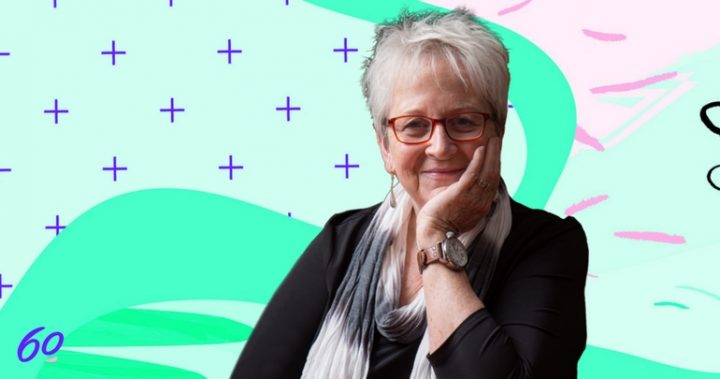Author Liz Byrski says ‘ageing is not a disease, it is a fact of life’

The magazine arrived in the mail. I flicked through it, spotted an article on ageing, folded it open at the page, and promptly forgot about it. Three weeks later on a beautiful Sunday morning I remembered it, and wandered out onto the verandah with a mug of coffee intending to read it.
For a while I sat there, enjoying the sun and the silence, the lavender in full bloom, the new buds on the roses and the cloudless blue of the sky. Spring at last! I was grateful to be almost half-way through my seventies, sitting in my garden with time to think about what ageing means to me. The article that I had yet to read had sparked this interlude of conscious reflection. Having anticipated this time of life with enthusiasm it has been so easy and delightful to slip into it. There are things I can no longer do, but there are many other new and different things to enjoy. There are disadvantages: aches and pains, some problems with mobility, and an increased awareness of the reality of death. But slowing down, talking less and thinking more, doing new, simpler and rewarding things to suit myself are some of the bonuses of this time of life.
Eventually I picked up the magazine. The article was about an Australian scientist, who is working on prolonging youth. Rather than just focussing on ways of treating the diseases of ageing he and his team are working towards the classification of ageing as a ‘standalone, treatable disease’.
I understand that some, perhaps many, scientists feel driven by the thrills and possibilities of science for its own sake, and that it must be frustrating to think beyond that, or to envisage disadvantages that detract from that. Perhaps some also feel the shadow of middle age as a threat that they want to hold at bay. They probably have the finest of intentions but classifying ageing as a disease can take us to ridiculous extremes.
Do we really want our children and grandchildren to be saddled with the concept of ageing as a lifelong disease that must be treated?
Ageing is not a disease, nor is a problem, it is a fact of life. The only problem is how we approach it, what we expect from it, how we talk to ourselves, and others about it, how we raise our children to think about, respect and plan for it.
Some years ago, the beauty, cosmetic and fashion industries explicitly and shamelessly declared a ‘war on ageing’; specifically, a war on women’s ageing. In this war the weapons are cosmetics, cosmetic surgery, and other procedures involving needles, potentially harmful substances, and various bits of trickery to plump up lips, cheeks, breasts and bums, or scalpels to reduce them. It’s a phoney war because ageing is not an enemy, unless we choose to make it one.
Ageing is the gift of time to live our lives in a different way.
Old age brings challenges and opportunities, different pleasures, new goals, fine new friendships and the richness and maturity of older ones. It can also bring pain and illness some restrictions, and sadness. This is life, and these things can happen at any age. Hopefully our ageing includes increased leisure, a little wisdom, a measure of respect, the opportunity to be different and to make a difference. Ideally it brings with it the wisdom and judgement to reject the profit focussed claims, concepts and products of some, or the suggestions of well-meaning others perhaps motivated by science as an end in itself, or by their unconscious fear of their own ageing.
Given that we age from the moment we are born, are children to grow up burdened with the belief that they are diseased from birth, or that ageing is an enemy on which they must declare war? Are we incapable of accepting that there is a natural balance and shape to life? We already have a reasonable expectation that human beings can live for a century, and the number who do increases every decade. Isn’t that enough?
The solution to negative perceptions of ageing lies in our embracing it as a part of life and enjoying the good fortune of reaching it. If we live long enough we will grow old, and eventually die. Can’t we just be thankful for what we have, grateful for the science that can help us to manage the physical and mental diseases of ageing, and become conscientious objectors in this phoney war? Do we have the courage to say, enough really is enough?
**********
 Author Liz Byrski, today’s guest columnist, is no stranger to the Starts at 60 community and again we sincerely thank her for giving us permission to repost her recent blog.
Author Liz Byrski, today’s guest columnist, is no stranger to the Starts at 60 community and again we sincerely thank her for giving us permission to repost her recent blog.
Her recent release, A Month of Sundays, introduces us to four women who for ten years have belonged to an online book club. Adele invites then to meet in the real world whilst she house-sits a property in the beautiful Blue Mountains in western Sydney. They spend a month sitting in front of warming fires after long walks in the fresh cold air. Naturally reading and discussing books is at the core of their sojourn and each woman is invited to bring with her the book which tells the others the most about who she is as a person.








 Proudly Australian owned and operated
Proudly Australian owned and operated